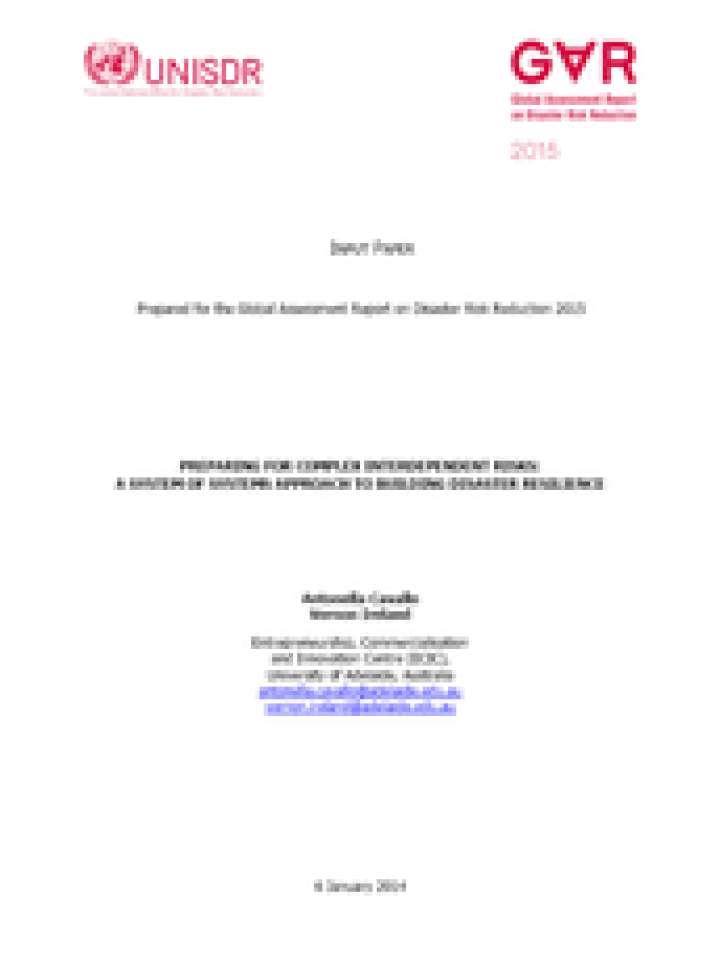Preparing for complex interdependent risks: A system of systems approach to building disaster resilience
This study advocates the need for disaster preparedness strategies to go beyond linear approaches to risk management. This is necessary in order to better address complex interdependent risks where such risks may be novel or unforeseen and which may connect in a cascading manner. Systems thinking was used in the study to explore networked approaches to support the community in building resilience in preparation for future unexpected disaster risks.
The authors indicate that the importance of ‘all-hazard’ approaches in areas exposed to significant specific risks has been underestimated and approaches to building general resilience have been under-researched. They suggest that a logic of general resilience may help to reach out to parts of the wider community that are currently hard to involve in disaster risk reduction activities. This may be achieved by exploiting network effects and bottom-up approaches within and beyond a
community.
This document is an input paper of the 2015 Global Assessment Report on Disaster Risk Reduction.
